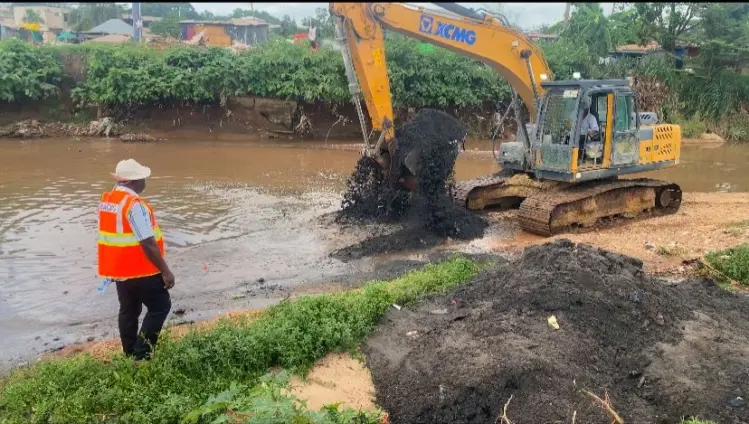The indefinite railway strike by Ghana Railway workers, protesting seven months of unpaid salaries, has triggered a livelihood crisis that is rippling through local economies, particularly impacting vulnerable food vendors and small traders. What began as a labor dispute has become a daily struggle for survival for those who depend on the railway for their income. The strike, authorized by the Railway Workers’ Union, has brought railway operations to a standstill, leaving vendors facing an uncertain future. The sound of trains, once a constant backdrop to daily life, is now replaced by an eerie silence, replaced by the anxious questions of those wondering where their next meal will come from. What does this crisis reveal about the vulnerabilities of informal economies in Ghana, and what solutions can offer immediate and lasting relief?
The impact is most visible at the Tema-Accra railway station, usually a hub of activity. Now, it resembles a ghost town, a stark contrast to its usual vibrant atmosphere. The absence of the familiar train hum and the bustle of passengers is palpable, but the most glaring void is the absence of the food vendors who were once an integral part of the station’s ecosystem.
“The morning sun shone down on a ghost town,” a witness described. “The familiar hum of trains and the bustle of passengers were conspicuously absent.”
The Railway Workers’ Union authorized the strike as a desperate measure to address the prolonged issue of unpaid salaries. For seven months, workers have labored without compensation, pushing the union to demand immediate action. Their primary demand is the full payment of salary arrears and the implementation of long-term safeguards to protect their livelihoods.
Among those most affected is Ama Koko, a porridge seller at the Tema-Accra railway station. Her daily routine once revolved around the arrival and departure of trains, each one bringing a fresh wave of customers eager for a quick and affordable breakfast. The fast-paced sales allowed her to support herself and her family.
“For about seven months, they haven’t paid the workers, which isn’t good, and it has affected my market severely,” Ama Koko explained, her voice tinged with frustration and worry.
The strike has decimated her sales, leaving her struggling to make ends meet. The bustling crowds have vanished, replaced by an unsettling quiet that echoes her financial anxieties.
“I make good sales when a lot of people come here to board the train,” she recounted. “But now, because of the strike, sales have dropped, and business is moving slowly.”
To cope with the drastic reduction in income, Ama Koko has been forced to make difficult choices. She has reduced the quantity of porridge she prepares each day, hoping to minimize waste, and has also slashed her prices in an effort to attract the few remaining customers.
“I even have to decrease the quantity of koko I prepare and reduce the price to sell faster,” she lamented, highlighting the desperation of her situation.
The economic fallout extends beyond the vendors. Drivers, petty traders, and other members of the station community are also feeling the pinch. The shared economic distress has fostered a sense of solidarity, but it is a solidarity born of hardship. The entire station community is enduring the economic toll of the shutdown, holding out hope for a swift and fair settlement between the government and the Railway Workers’ Union.
Potential solutions to the crisis hinge on the urgent resolution of the salary dispute. The government must prioritize negotiations with the Railway Workers’ Union to ensure that workers are paid their due wages and that measures are put in place to prevent similar situations from occurring in the future. If the strike continues, the long-term impact on the local economy could be devastating, potentially leading to widespread poverty and social unrest.
Government interventions or support programs for affected vendors and traders may be necessary to provide immediate relief. These could include financial assistance, access to alternative markets, or skills training to help them diversify their income sources.
The indefinite railway strike in Ghana has triggered a severe livelihood crisis for vendors and small traders reliant on the railway system. Ama Koko’s story exemplifies the struggles faced by many. Addressing the root cause – the unpaid salaries of railway workers – is crucial for restoring economic stability to these vulnerable communities. The hope remains for a swift and equitable resolution, safeguarding the livelihoods of those most affected by the railway strike and future-proofing from similar crises. This disruption highlights the critical need for reliable employment frameworks and contingency planning for small-scale businesses.
Image Source: MYJOYONLINE






















